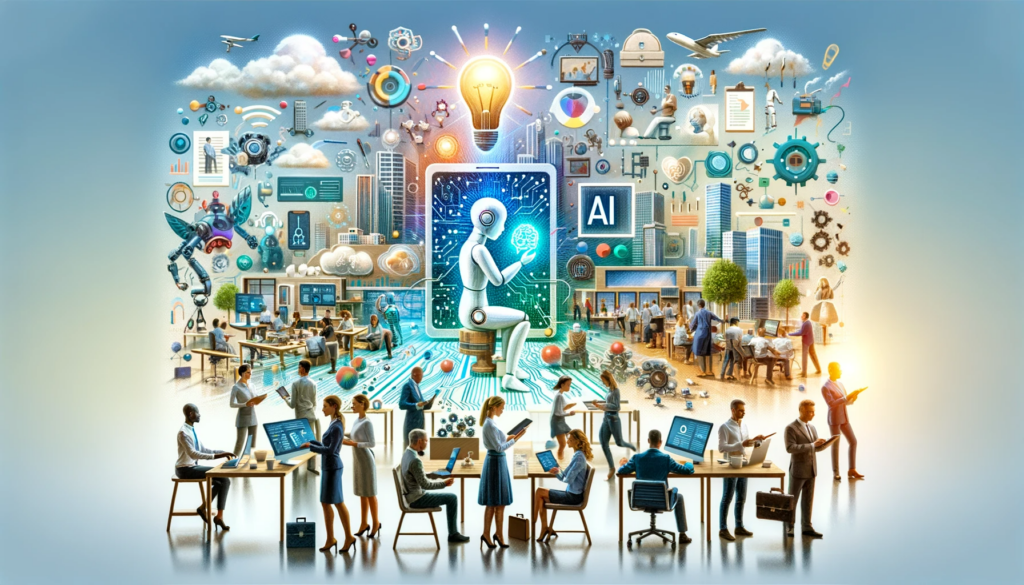Stop Gambling on Data Science and AI Talent,
Start Hiring with Confidence!

Take a moment and think about your morning routine today. Maybe you asked a virtual assistant about the weather. Perhaps your car offered you the quickest route to this venue, taking into account real-time traffic. Or, maybe, while enjoying your coffee, you read news articles recommended to you by an algorithm, catering precisely to your interests. These actions might seem mundane, routine even, but did you realize? You’ve just interacted with the first wave of Artificial Intelligence shaping your day. It’s almost magical, isn’t it?
Now, imagine if these small interactions, these mere conveniences, are just the tip of the iceberg. Picture a world where AI doesn’t just impact how we start our day but also influences our work decisions, our collaborations, our innovations, and, indeed, the very future of our professions. Well, you don’t have to imagine too hard because that future is unfolding right here, right now.
Let us dive deep into understanding the different ways in which AI is redefining the world of work, and more importantly, how identifying these changes can empower us to navigate our careers in a world constantly reshaped by technology.
How Generative AI is Driving Change in the Workforce
The rise of Artificial Intelligence is often described as the dawn of a new era, but what is less frequently discussed is the specific branch that’s generating waves: Generative AI. The potential and application of this technology is vast, and its effects on the workforce are becoming increasingly evident.
Generative AI is significantly impacting industries
Generative AI, which uses algorithms to produce new data that mirrors existing patterns, is proving to be a game-changer across sectors. Whether it’s in banking, where it can help create financial models, or in the entertainment sector, where it can draft scripts or produce music, the effects are pervasive.
For instance, in the retail sector, generative models can forecast sales patterns, design new products, or even curate personalized shopping experiences. Similarly, in healthcare, these AI models are instrumental in producing potential molecular structures for new drugs, vastly accelerating the R&D process.
Generative AI is changing occupations and data professions
Think about a financial analyst who traditionally poured over spreadsheets to produce forecasts. With Generative AI, much of the data analysis can be done in a fraction of the time. This doesn’t necessarily render the analyst redundant but rather reshapes their role into more of a decision-maker or strategist, leveraging the insights provided by AI.
Generative AI is impacting the types of tasks people will do
With Generative AI, gone are the days when brainstorming sessions needed to stretch for hours. Now, AI can generate innovative ideas in minutes. It can suggest multiple strategies to tackle a business problem, all based on data-driven insights. This doesn’t just streamline processes but also opens doors to solutions humans might not have considered.
Generative AI is impacting the demand for specific skills
As Generative AI becomes more prevalent, the skills required in the modern workforce are undergoing a transformation. It’s no longer just about understanding your domain but also about understanding how AI can be leveraged within it. While the demand for manual and repetitive tasks decreases, there’s a surge in the need for AI literacy, continuous learning, and adaptability. In this landscape, soft skills like emotional intelligence, teamwork, and ethics, especially related to AI’s implications, gain prominence.